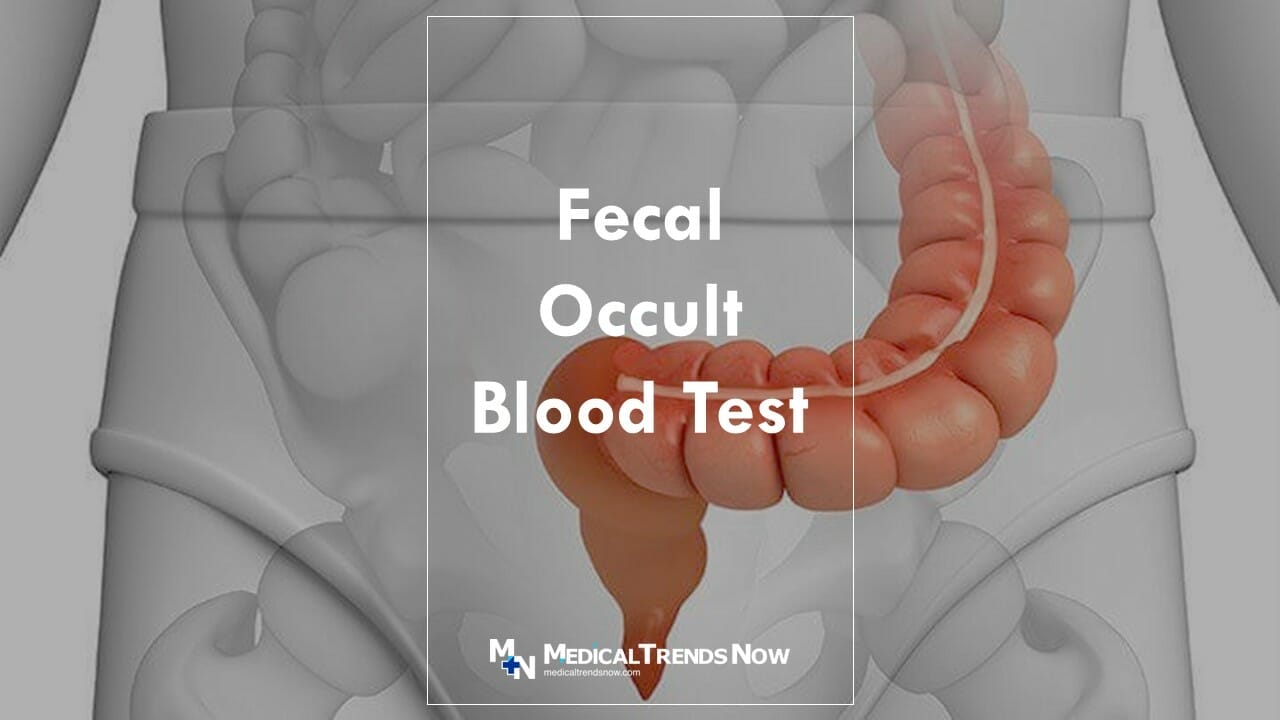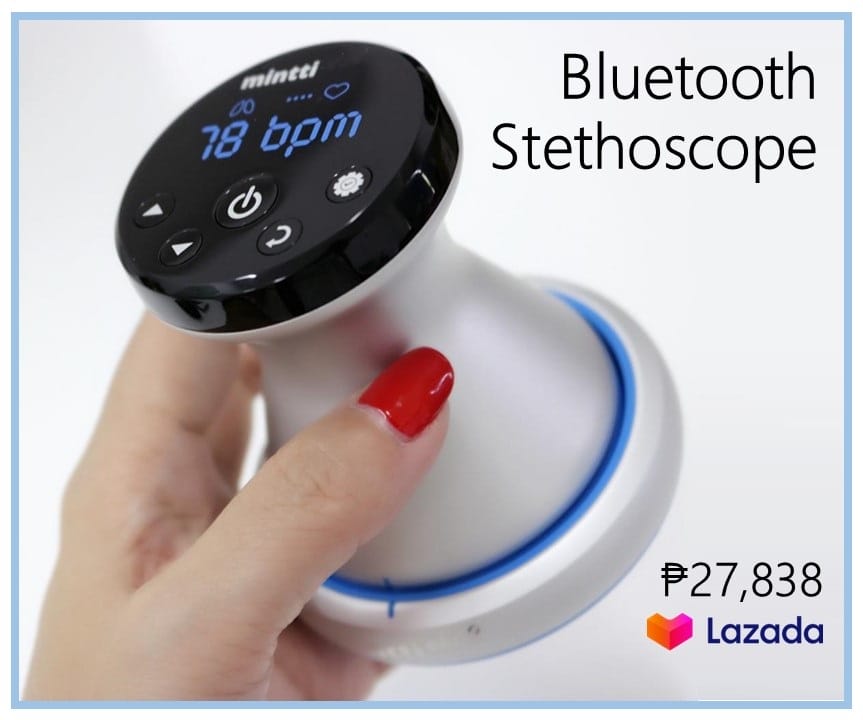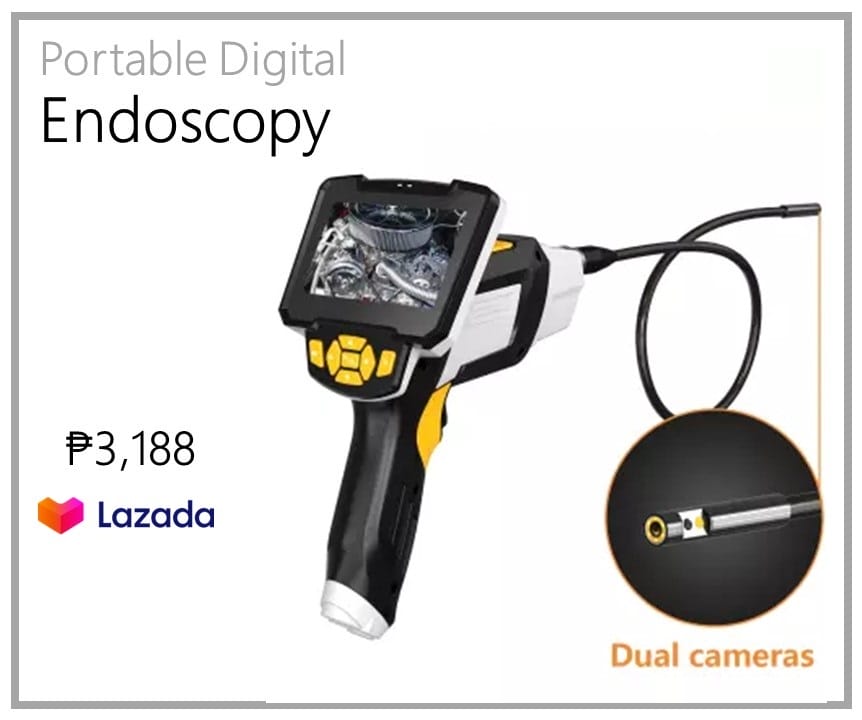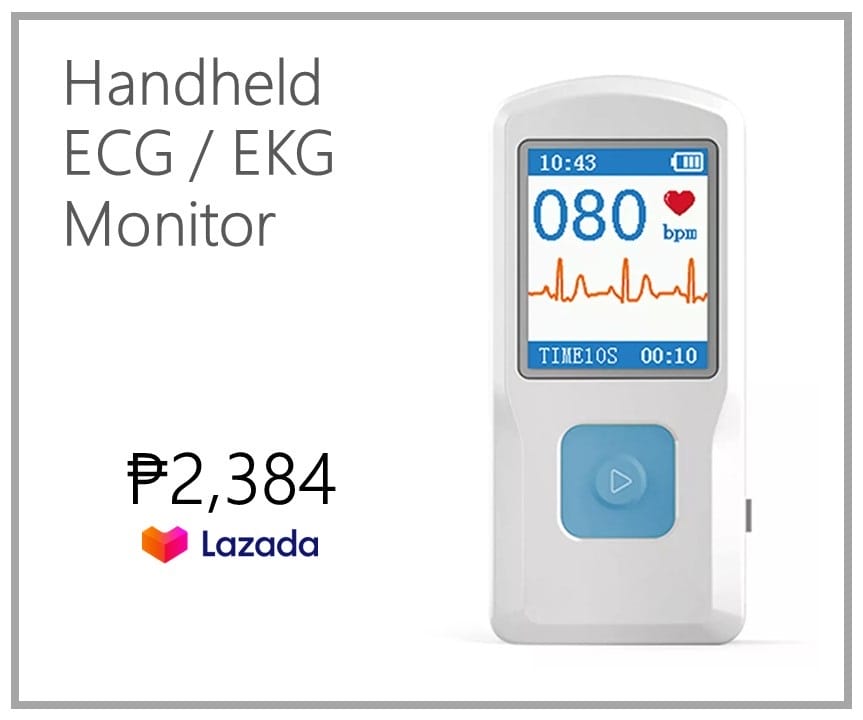Table of Contents
A Fecal Occult Blood Test (FOBT) is a medical procedure to diagnose potential digestive problems. It is an important diagnostic tool in the Philippines, as it can detect hidden blood in the stool, indicating the presence of gastrointestinal diseases or conditions. Knowing what to expect before having a fecal occult blood test is essential to ensure that you get accurate results and make informed decisions regarding your health.
What Is A Fecal Occult Blood Test?
A fecal occult blood test (FOBT) is a screening test that can be done to look for signs of inflammation in the colon. The test involves taking a small sample of stool and testing it for the presence of blood. Blood in the stool can signify colon cancer or polyps in the colon or rectum.
Typically, occult blood is passed in such minute volumes that a FOBT is the only way to detect it. It may reveal blood, in which case other tests may be required to identify the cause of the bleeding. The fecal occult blood test cannot tell what is causing the bleeding; it can only detect the presence or absence of blood.
FOBT is an important medical diagnostic test that can help determine the presence of disease and health conditions in people. It is particularly useful in detecting early signs of colorectal diseases. This article will discuss what you should know before getting a fecal occult blood test in the Philippines.
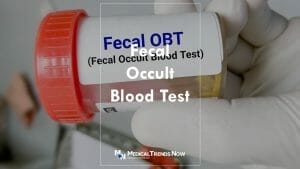
Types of Fecal Occult Blood Tests in the Philippines
There are three types of Fecal Occult Blood Tests:
1. Guaiac Occult Fecal Blood Test
Your doctor will normally provide you with test cards for this test, which is used to collect stool samples from many bowel movements.
Typically on consecutive days, you collect a stool sample from each of two or three bowel movements, place it in a clean container, and use an applicator stick to apply a smear of feces to a particular spot on a card. The dried samples will be sent back to the designated lab, either by mail or in person, after they are dry.
2. Immunochemical Fecal Occult Blood Test (FIT or iFOBT)
The way you collect the sample for this test may vary depending on the manufacturer. Still, generally, it is used with a special spoon or other tools to gather the sample of feces and keep it in the collection container that comes with the test kit. After that, it will be sent via mail or delivered the collection container back to the designated lab.
The more sensitive immunochemical testing is preferred over the Guaiac FOBT. Additionally, it is frequently possible to collect a random stool sample for testing without any dietary limitations.
3. Flushable Reagent Pad
This kit is available over the counter. This is done by putting the pad or tissue in the toilet bowl following a bowel movement, typically three days in a row. As soon as the blood is present, the pads change color.
Preparation For Fecal Occult Blood Test
Some fecal occult blood tests may produce false-positive results, which indicate that blood is present when it isn’t, or false-negative results, which indicate that blood is present but isn’t detected (false-negative). Your doctor might advise you to stay away from specific foods or medications. Carefully adhere to your doctor’s recommendations to obtain accurate test results.
Your doctor may advise you not to take the following for at least three to five days prior to the submission of your stool for FOBT:
- Red Meat
- Vitamin C Supplements
- Pain relievers (Ibuprofen, Aspirin)
- Some fruits and vegetables, including broccoli and turnips
- Dark-colored foods
Does FOBT Require Fasting?
The fecal occult blood test doesn’t really require fasting for hours, but a patient may be required to avoid red meat and dark-colored foods for 3-5 days before testing. The sample collected must be sent to the laboratory within an hour or two after collection to avoid loss of viability and to utilize a freshly collected sample for testing.
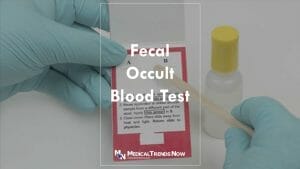
What Are The Risks Of Getting A Fecal Occult Blood Test?
Testing for Fecal Occult Blood may also have risks, such as yielding of false-positive and false-negative results due to certain conditions and factors.
Another is that a Fecal Occult Blood Test may lead to or require additional tests, such as a colonoscopy, especially if the initial stool testing is positive.
What is Colonoscopy?
A colonoscopy is a diagnostic procedure used to examine the lining of the large intestine. A long, flexible tube equipped with a tiny camera is inserted into the rectum and passed through the entire length of the colon. The procedure allows the doctor to look for abnormal growths, bleeding, ulcers, and other conditions.
A colonoscopy is generally safe and carries only a small risk of complications. The most common complication is bleeding from the biopsy site. Other potential complications include perforation of the intestine, infection, and reactions to sedatives used during the procedure.
Causes of False-Positive Results for FOBT:
The most common causes of false-positive results for FOBT are the use of medications that can increase the amount of alkaline phosphatase in the blood, such as anticoagulants or blood pressure medication. Other causes include:
- Drinking alcohol before taking the test
- Taking ibuprofen or other non-steroidal anti-inflammatory drugs (NSAIDs) within two hours before taking the test
- Having a fever
- Having recently traveled to a high-alkaline environment, such as China or Hawaii
- Having a viral gastroenteritis
- Having a bowel obstruction
- Taking certain antibiotics
- Eating certain fruits or vegetables within two hours before taking the test
- Having an autoimmune condition that affects the liver.
Causes of False-Negative Results for FOBT:
The most common cause of false-negative results is due to the person’s diet. The presence of food or drink in the stool can affect the test, yielding a false-negative result.
Other causes of false-negative results include the following:
- Having malnutrition
- Diarrhea
- Taking medications that interfere with alkaline phosphatase production (such as NSAIDs)
- Having a recent illness that caused diarrhea
How Accurate Is A Fecal Occult Blood Test?
FOBT typically yields an accuracy rate of about 75%.
A fecal occult blood test (FOBT) is an important diagnostic test for many conditions and is available in the Philippines. Before getting an FOBT, it is important to understand what this test involves and why it is necessary. This article will explore some of the key things you should know before undergoing a fecal occult blood test in the Philippines, including what it is used for, how it is performed, and potential risks or complications that may arise.
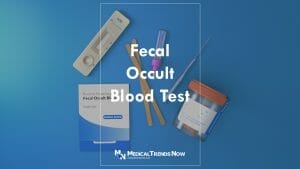
When Should You Get A FOBT?
Physicians in the Philippines usually request a fecal occult blood test, too, in some instances when there are red blood cells reported on your routine fecal analysis.
However, having an FOBT depends on various factors, such as your age, family history, and lifestyle. However, it is generally recommended that people over the age of 50 should get an FOBT every year. If you have a family history of colon cancer, you may need to start getting the test at an earlier age. Another is if you have certain risk factors for colon cancer, such as a sedentary lifestyle or a diet high in red meat and processed foods, you may also need to get the test more frequently.
In What Circumstances Should I Have to Take a Fecal Occult Blood Test?
If you are experiencing symptoms of gastrointestinal illness, you should consider taking FOBT. The blood test can help identify the cause of the illness. These symptoms include:
- Diarrhea
- Nausea
- Vomiting
- Cramps
- Bloating
- Abdominal pain
- Anorexia
- Fatigue
- Fever
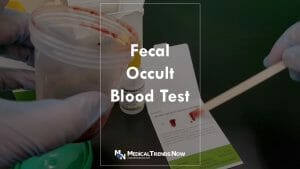
Where Can I Have My Fecal Occult Blood Test Done?
You can go to a few different places to get an FOBT done. The Medical Laboratory is likely the most convenient option, as they can usually administer the test during a regular appointment. There are also a number of clinics and hospitals that offer the test, though you may have to make a special appointment. Finally, at-home FOBT kits are available for purchase online or at your local pharmacy.
So, if you are concerned about your gastrointestinal health and want a fecal occult blood test, be sure to talk to your doctor about the best way to proceed.
How Much is the Cost of Fecal Occult Blood Test in the Philippines?
In the Philippines, the cost of FOBT can range from PHP 85 to PHP 550, depending on the facility and type of tests needed.
The most basic version of FOBT typically costs around PHP 85 at local clinics, with some higher-end facilities charging up to PHP 550 for more comprehensive tests. The most expensive option includes a series of multiple blood tests that evaluate various aspects, such as fecal occult blood level, as well as additional tests, such as stool cultures and imaging studies like X-rays and ultrasounds.
For individuals who are concerned about their health but cannot afford costly medical bills, FOBT can be an inexpensive way to detect any potential problems in their digestive tract.
Here are the prices of fecal occult blood tests in the Philippines:
| Healthcare Provider | Lab Services | Prices |
| New World Diagnostics | Fecalysis | PHP 85.00 |
| Occult Blood | PHP 550.00 | |
| Perpetual Succor Hospital | Occult Blood | PHP 115.20 |
| Dr. Jose Rizal Memorial Hospital | Fecalysis (AGAPE) | PHP 50.00 |
| Fecalysis only | PHP 30.00 | |
| Fecalysis with Occult Blood | PHP 130.00 |
How Much are FOBT Kits in the Philippines?
FOBTs are important diagnostic tools used to detect the presence of hidden blood in a stool sample. These tests can help detect colorectal cancer, which is one of the most common types of cancer in the Philippines. But how much do FOBTs cost?
A quick search online reveals that FOBT kits sold in pharmacies throughout the country range from PHP 680 to PHP 7,280. The amount you pay depends on various factors, such as the brand and quality of the test kit, your location, and whether or not you have health insurance. While it may be expensive to buy an individual test kit, it’s worth noting that early detection and treatment of colorectal cancer can save lives.
Here are the prices of FOBT Kits in the Philippines:
| Supplier Name | Name of FOBT Kit | Price |
| Philippine Medical Supplies | HEMA Screen | PHP 5,500.00 |
| Fujibio Diagnostics | Fujibio Fecal Occult Blood Test Kit | PHP 680.00 |
| Instant-View | immunochemical Fecal Occult Blood | PHP 2279.00 |
| LumiQuick | Fecal Occult Blood Rapid Test | PHP 7,280.00 |
What You Should Expect With The Fecal Occult Blood Test Results:
The FOBT is a test used to detect hidden blood in the stool sample. It is used to diagnose colorectal cancer or other conditions causing bleeding in the lower digestive tract. The results of this test can help physicians decide whether additional testing and treatment are necessary.
The FOBT requires a patient to collect their own stool sample and deliver it to a laboratory for processing. The lab technicians then check for any traces of hidden blood that may indicate an underlying health issue, such as colorectal cancer, polyps, ulcers, inflammatory bowel disease, or parasites. If no blood trace is found, the patient’s colon and rectum are healthy and free from problems.
- The fecal occult blood test is deemed negative if no blood is found in the stool samples. If you have a typical risk of colon cancer, your doctor could advise having the test repeated yearly.
- The fecal occult blood test is deemed positive if blood is found in your stool samples. To find the source of the bleeding, the physician might require more testing, including a colonoscopy.
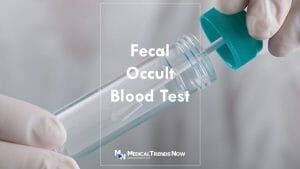
Is Fecalysis or Fecal Analysis the same as a Fecal Occult Blood Test?
No, fecalysis and fecal analysis are not the same as FOBT . Fecalysis is a medical procedure in which a stool sample is examined for the presence of blood, leukocytes, and other intestinal parasites. In contrast, an FOBT is used to screen for colon cancer. While both tests may be used to evaluate gastrointestinal health, they are not interchangeable.
This question has been asked by many people, and the answer is no. An FOBT is an important diagnostic tool used to screen for various conditions related to the presence of hidden blood in the stool. It can detect microscopic traces of blood that are not visible to the naked eye. On the other hand, fecal analysis, also known as fecalysis or stool analysis, is a comprehensive examination of the feces sample and can provide information about any abnormal substances present in it, such as parasites, bacteria, or viruses.
FOBT involves collecting samples from multiple sites within a person’s stool sample and testing them for occult (hidden) blood to detect tumors or other possible gastrointestinal problems.
What is Fecalysis (or Fecal Analysis)?
Fecalysis, or fecal analysis, is an important diagnostic tool used by medical professionals to identify and diagnose potential health issues in patients. It involves the examination of a patient’s feces to detect any abnormalities that may be indicative of diseases or disorders. Fecalysis can help physicians determine if an infection is present, evaluate kidney and liver function, check for intestinal parasites or other foreign bodies, and assess overall digestive health.
The process of fecalysis begins with collecting a sample of the patient’s stool, which is then sent off for laboratory testing. During testing, the sample will be examined for color, texture, fat and protein content levels, and any signs of bacteria or parasites. Additional tests may be ordered depending on the information found during the analysis.
How is Fecalysis Different from Fecal Occult Blood Test?
Fecalysis and FOBT are two different diagnostic tests used to detect potential medical problems in patients. Fecalysis is a laboratory analysis of feces collected from the patient’s body and sent for testing. This test helps identify many conditions, such as infections and other diseases, that cannot be identified through a physical examination alone. FOBT, on the other hand, is a non-invasive test used for detecting hidden blood in the patient’s stool sample.
The main difference between these two tests is that Fecalysis provides more information than FOBT. Fecalysis allows doctors to identify bacteria, parasites, or viruses present in the feces sample, which can indicate gastrointestinal diseases or certain infections. In contrast, FOBT only allows them to detect any presence of hidden blood in the sample, which could indicate intestinal bleeding or polyps.
Final Word: Fecal Occult Blood Test in the Philippines
Before getting a fecal occult blood test, there are many things to consider, but if you’re considering this test for your gastrointestinal health, know that it is an important tool for diagnosing and treating illness.
FOBT has the potential to become an invaluable tool in the Philippines for the early detection of colorectal cancer. The test is simple, cost-effective, and can be conducted in a matter of minutes with minimal discomfort to the individual. Despite its potential benefits, however, many unanswered questions regarding its implementation and effectiveness still need to be addressed.
In conclusion, FOBT is beneficial for detecting colorectal cancer in the Philippines. The test is easy to perform, cost-effective, and highly reliable. Furthermore, it can detect cancer at early stages when treatment is most effective. This makes it an essential part of the public healthcare system.
Sources
- Fecal occult blood test – Mayo Clinic
- Understanding your FOBT results | Cancer Council
- Evaluation of occult gastrointestinal bleeding – UpToDate
- FOBT | American Society of Clinical Oncology (ASCO)
- FOBT – StatPearls – NCBI Bookshelf
- FOBT (FOBT): Purpose, Procedure & Results – Cleveland Clinic
- Definition of fecal occult blood test – National Cancer Institute
- Stool Test: Fecal Blood (for Parents) – Nemours KidsHealth
Disclaimer
This website is intended to educate both members of the general public and those working in the medical field on the prevalence, causes, and methods for preventing, diagnosing, and treating diseases that affect people throughout their lives. This website’s content is provided solely for informational reasons and is not meant to serve as a substitute for the advice of a qualified medical practitioner.

